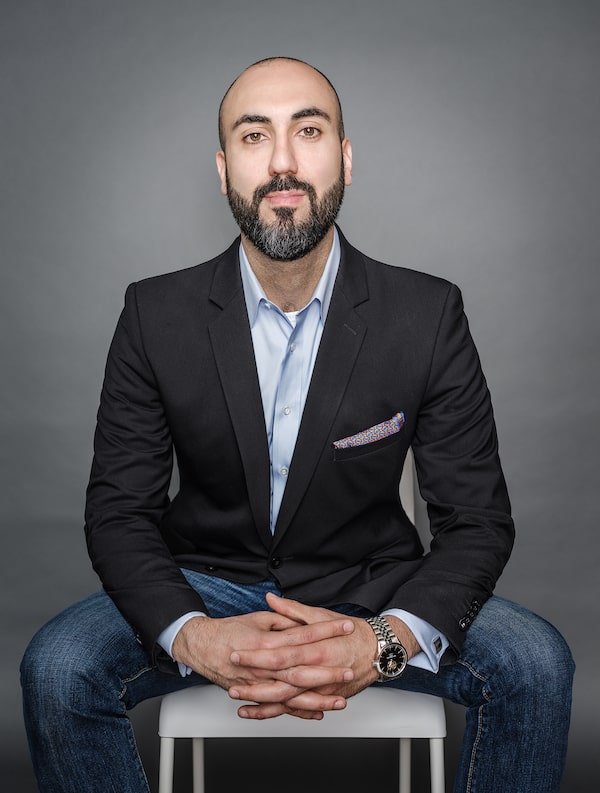
Mo Dezyanian, founder of Empathy Inc.DIMORA
My aggressive style served me well as a consultant.
Four years ago, a project I was working on went sideways. We had an ad campaign live but our website was not behaving as promised. As I was walking into the office, I received an urgent e-mail from the client. He was more than upset.
I dialled the website contractor before I’d finished reading, demanding the problem be fixed, stat. Thirty minutes later, when the problem wasn’t resolved and I hadn’t received an update, I called again. And then again 10 minutes later, my tone tighter and harsher each time.
When I hadn’t received the immediate response I required, I punched in the number for my contact’s supervisor, demanding that the problem be resolved immediately. Then I hung up.
I got what I wanted that morning. I usually did.
As a consultant, I was usually hired by top managers for a short-term assignment. I’d hit the ground running – move in, choose a course of action and turn on the afterburners.
I’d demand swift results from staff and stakeholders, never taking no for an answer. Once the problems were addressed, I’d move on to another job, with another executive, at another company.
Many of the company bosses – who hired me, but didn’t usually work directly with me – loved my results and track record. After all, that’s exactly why people often hire consultants; they’re looking for someone from outside to make the hard decisions and execute the tough tasks.
But after one successful short-term stint, where I fired and replaced a whole division that wasn’t performing well, I was offered a full-time gig. For me, the timing was right. With a new mortgage signed and plans for kids on the horizon, I decided it was a good time to take on a regular job.
But working on staff was a whole new ballgame.
No surprise, my style clashed with management and other line-of-business leaders, and the intense competition over bonus dollars only added fuel to the flames. Based partly on this clash, I left the company before my probation period was over.
The full-time gig had clearly not been a success story. I was discouraged and shaken – still faced with the mortgage and plans for a family, but without any financial certainty. I had to rev up my consulting business again, pronto. I started calling and e-mailing, sending LinkedIn messages, reaching out to my network.
But few returned my calls and notes.
And as the no-reply pattern continued, the realization dawned that a lot of people didn’t want to work with me. It was a seriously tough pill to swallow.
When we get hit hard, we tend to think hard. That’s what I did. And I thought in particular about how I’d approached my work in the past.
I’d always start by attacking the big problems. But I didn’t stop there, I’d attack the people who got in the way of change. We’ve all been in that place, knowing who was standing foursquare in the path of progress, and wanting to transport them halfway around the planet. The question is how you deal with that. Yes, I got great results, based on the objectives set. But too many people thought I was a jerk, or even worse, a bully.
Yet, I loved the business I was in. So I decided to rebuild my relationships, one by one.
I started by sending gift packages to a few former clients. Something simple, something sweet – say gourmet muffins, or chocolate. I got a 100-per-cent callback rate on those ones.
Once I met with people, I didn’t lay out a heavy confession of my sins. I just had honest conversations. Some people didn’t want to meet; relationships were damaged beyond repair, and I accepted that.
But with most, I tried to learn what motivated them to get into business, and what they were like as human beings. I was vulnerable. And, more than that, I was sincere. This wasn’t just about assuaging old hurts; it was about me moving forward as an empathetic colleague and leader.
Moment by moment, one coffee at a time, I built up a new consulting business, this time focusing on advertisers instead of agencies. I named my new agency Empathy, to remind me of the value of building long-term relationships.
Now when I tackle a business problem, I put considerable effort into understanding why previous decisions were made, and how different courses of action could affect various stakeholders. I listen. I invest time and effort into understanding the motivations and values of the people I work with.
Short-term results are often temporary and changeable. Lasting achievement or change only comes from a long-term approach. Sure, there are times when a more inclusive approach takes a bit longer, but today’s solution is the basis of tomorrow’s new initiative. And while short-term results will please an impatient boss looking for a certain metric, long-term relationships and strong teams are how mountains are moved.
Business is personal, every single time.
Mo Dezyanian is the president of Empathy Inc., an ad agency consultancy. He spoke at a recent F’up Nights Toronto event where stories of failed businesses and projects are told, questioned and celebrated.